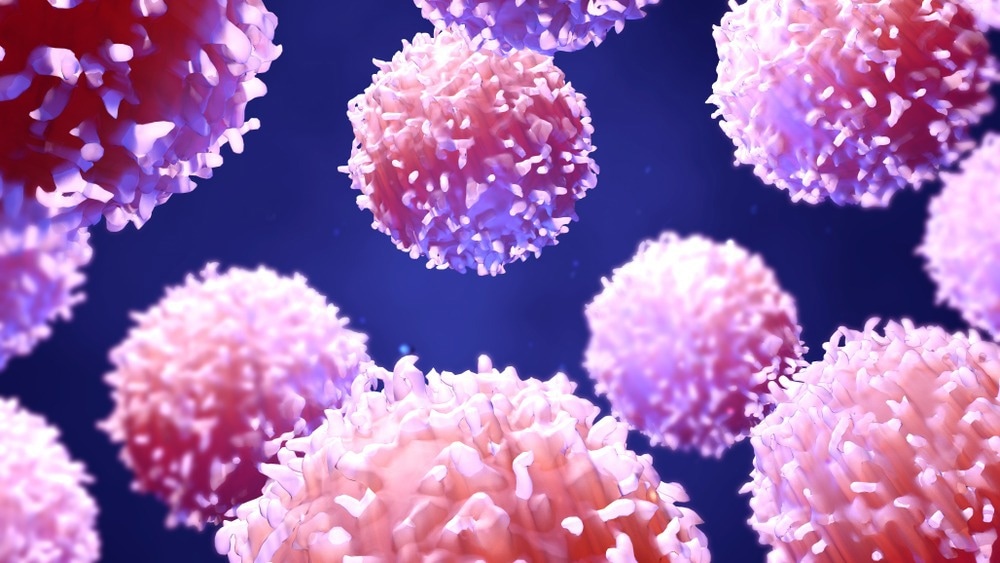Reviewed by Danielle Ellis, B.Sc.Jul 20 2023
Scripps Researchers have found that looking at a certain type of immune cell in the blood can help pinpoint those who are most vulnerable to acquiring type 1 diabetes, a fatal autoimmune disease. If the new method is proven effective in additional research, it could be used to identify people who will respond well to treatment that halts the autoimmune process, turning type 1 diabetes into a treatable condition.

Image Credit: Design_Cells/Shutterstock.com
The study, which was published on July 5th, 2023, in Science Translational Medicine, involved the isolation of T cells, an immune cell type, from mouse and human blood samples.
They were able to identify the at-risk individuals who had active autoimmunity from those who had no major autoimmunity with 100% accuracy in a small sample by examining the T cells that can lead to type 1 diabetes.
These findings represent a big step forward because they offer the possibility of catching this autoimmune process while there is still time to prevent or greatly delay diabetes.”
Luc Teyton, MD, PhD, Study Senior Author and Professor, Department of Immunology and Microbiology, Scripps Research
Siddhartha Sharma, a graduate student, and Josh Boyer and Xuqian Tan, research assistants in the Teyton lab at the time of the study, served as the study’s first authors.
The “islet cells” of the pancreas that produce insulin are destroyed by type 1 diabetes when the immune system attacks them. The autoimmune mechanism that causes type 1 diabetes can take years to develop and can occur in fits and starts.
Although it is known to entail genetic variables and may be set off by common viral infections, the exact mechanism by which the process starts is not well understood.
It often manifests in infancy or early adulthood and calls for constant insulin replacement. According to researchers, two million people in the United States alone are believed to have type 1 diabetes.
The US Food and Drug Administration authorized an immune-suppressing therapy in 2022 that, if used in the early stages of autoimmunity, can protect islet cells and, at the very least, postpone the onset of diabetes by months to years.
However, physicians have not had a reliable approach to locating patients who would profit from such treatment. Anti-islet antibody levels have historically been measured in patient blood samples, but the accuracy of this antibody response to autoimmune development has not been great.
Teyton added, “Anti-islet antibody levels are poorly predictive at the individual level, and type 1 diabetes is fundamentally a T cell-driven disease.”
Teyton and his team created protein complexes in the study to simulate the combination of immune proteins and insulin fragments that CD4 T cells, a subset of specialized T cells, normally detect to start the autoimmune reaction.
These constructs served as bait to draw anti-insulin CD4 T cells from blood samples. The T cells were then examined for gene activity within the cells and protein expression in the cells to determine the level of activation.
They were able to create a classification algorithm in this fashion, and it successfully determined which of the nine at-risk patients had anti-islet autoimmunity that was still present.
Teyton now plans to compare the CD4 T cell-based method to the conventional method of detecting anti-islet antibodies in a long-term study with a more expansive cohort of individuals to verify the method.
To facilitate its usage in a clinical context, Teyton and his coworkers are also attempting to simplify and lower the cost of the procedure for isolating and evaluating anti-islet T cells from blood samples.
Teyton concluded, “If we can develop this into a useful method for identifying at-risk patients and tracking their autoimmunity status, we not only would have a way of getting the right people into treatment, but also would be able to monitor their disease progress and evaluate potential new preventive therapies.”
Source:
Journal reference:
Sharma, S., et al. (2023). Measuring anti-islet autoimmunity in mouse and human by profiling peripheral blood antigen-specific CD4 T cells. Science Translational Medicine. doi.org/10.1126/scitranslmed.ade3614